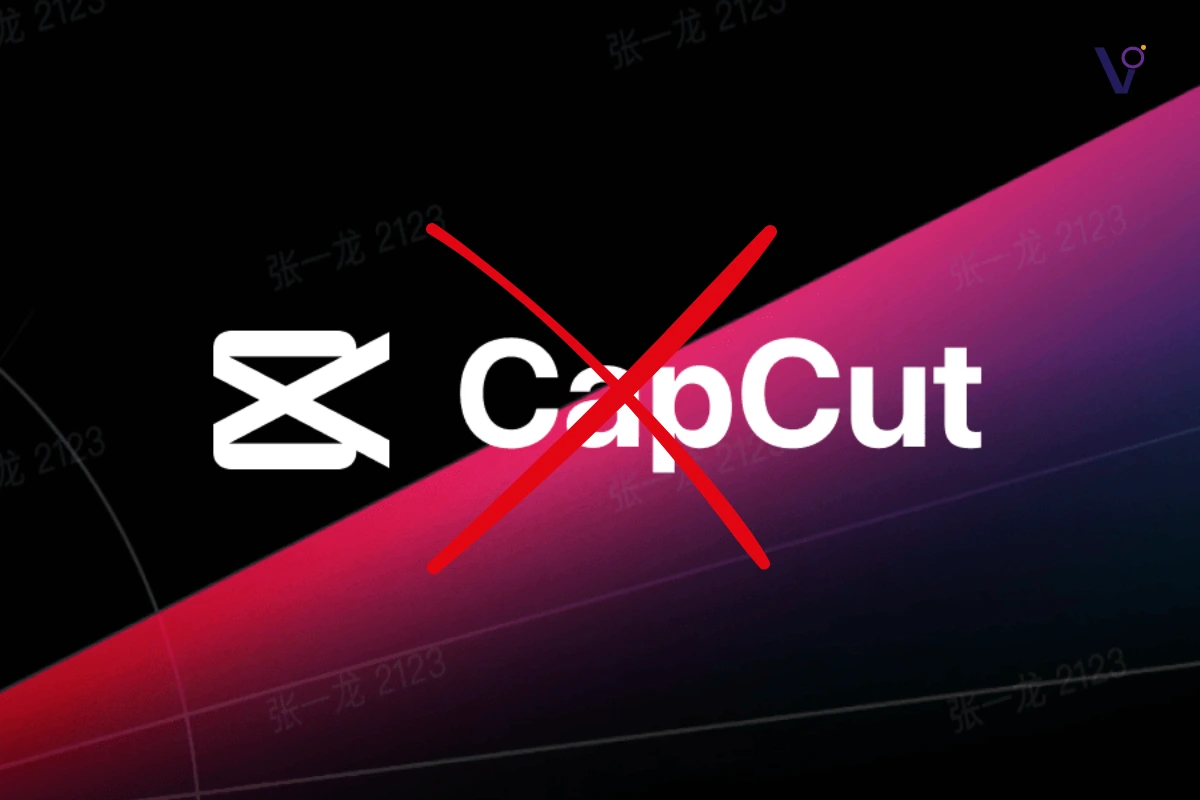Is CapCut banned in the US? Well, it had. But it is back. You probably already are a CapCut video editor. Everyone on the internet was more sad about the CapCut ban than TikTok. That is not surprising, is it? CapCut is used by everyone for how easy it makes video editing. If there is no video editing app, there is no video; hence, what is the need for TikTok, right? But don’t get so happy already.
Surprisingly enough, Meta is entering the game, and it is about to be a game changer.
Why Was CapCut Banned in the US?
CapCut went banned as part of bulk ByteDance crackdown (including CapCut, Lemon8 and TikTok) The app sparked a fear-mongering backlash as federal regulations on these platforms were of concern. Despite TikTok being relaunched almost immediately, CapCut would not be around for some time, so many creators had to jump through hoops with the sidestep.

Interestingly, during the ban, memes crept up on the internet, almost joking that they were more terrified of getting CapCut than TikTok.
The Good News: CapCut is Back
It is a sigh of relief for U.S.-based creators who use CapCut to edit TikTok videos via its TikTok integration and user-friendly editing. But then, come the catch.
The U.S. government has just allotted ByteDance 75 days to sell 50% of the company to any American firm or face another ban. If ByteDance refuses, then CapCut and TikTok are permanently gone from the U.S. market.
Meta’s Bold Move
On top of the difficulties ByteDance is trying to overcome, Meta is preparing its own advanced video editing platform for the public meanwhile, which will likely pose a serious competitor to CapCut.
https://www.instagram.com/mosseri/reel/DFBIzLAynIQ
There are few official announcements, but it seems like one leaked tool here will turn the tide. These are some strategies that they use that work no matter what because the highest search right now is “alternatives for CapCut.” So, Meta’s platform is no doubt a serious threat.
Features of Meta’s Upcoming Editing Tool
- Precision Editing: Advanced tools to deliver a level of detail CapCut doesn’t currently offer.
- Collaborative Drafts: Users can share video drafts with friends and collaborate on edits in real time—a groundbreaking feature.
- Platform Integration: Deep integration with Instagram and Facebook for seamless uploading and sharing.
- Trending Templates and Audios: A suite of tools to keep creators on top of the latest trends.
This new editing tool isn’t just about better features; it’s a strategic move by Meta to draw users back to Instagram and Facebook while directly challenging TikTok’s dominance.
Subscription Confusion with CapCut
While CapCut’s return is great news, some users are facing challenges with the app’s subscription model. Previously, creators paid $8/month for premium features, but many are now being forced to resubscribe at a new rate of $20/month.
This sharp price increase has left users frustrated. For many, CapCut remains an indispensable tool, but the subscription confusion is a significant drawback that ByteDance needs to address.
TikTok’s Changing Dynamics
TikTok’s return to the U.S. has also brought some changes. Many users report a shift in content style, with creators opting for more casual, unpolished videos that feel like “FaceTime vibes.” While this raw, authentic approach resonates with some, concerns about censorship are growing.

In the U.S., there are increasing reports of mass censorship on TikTok, whereas creators in Canada and the U.K. face fewer restrictions. This disparity raises questions about how federal regulations are influencing content moderation.
Instagram’s Edits App: A Potential Disruptor
Instagram, owned by Meta, is preparing to launch a mobile-first video editing app called Edits, designed to compete directly with CapCut. With features focusing on intuitive editing and platform integration, Edits could become a serious contender.
Additionally, Meta is incentivizing creators to link their TikTok accounts to Instagram, potentially consolidating user bases. There’s even speculation that Meta might acquire TikTok or its assets in the future.
What Does ByteDance Risk Disproportionately?
ByteDance faces a monumental decision: comply with the U.S. government’s demand to sell half of the company or risk losing access to one of its largest markets. The potential ban would be a massive blow, not just to ByteDance but to creators who rely on TikTok and CapCut for their livelihoods.
The Countdown Begins
The decision is not going to be easy for ByteDance because it has to sell half of the company to comply or be denied one of its biggest markets, which is the U.S. The ban could be catastrophic—not just to ByteDance but also to creators who use TikTok and CapCut as their main sources of income.
If ByteDance sells, it just preserves the share of the US market for the future Hopefully, in any other case apps like CapCut, TikTok & Lemon8 might disappear and hence there will be a void which competitor will only hold eagerly.
Adapting to Change
Date your digital world; creators gotta be able to adapt and try new shit too. As it is for the tech industry, everything comes a heck of a long way back, but how fast this happened with CapCut. The next few months will be key for creators and platforms, as well as subscription confusion and censorship fears, plus new competition.
The Bigger Picture
To a larger point, CapCut coming back is a lesson that only the tech press could miss—that most acutely speaks to competition, innovation, and the future of digital creativity (e)non-subscriptions. With Meta throwing its flag at the tent and ByteDance racing against the clock, the odds are even heavier than ever.
For now, creators should enjoy CapCut up until Meta does something different! This is a time of incredible opportunity, and those who adapt will continue to thrive.
Stay tuned for updates, and let’s see where this exciting journey takes us!
CapCut was banned due to its association with ByteDance, raising concerns over data privacy and national security.
If ByteDance doesn’t sell part of its ownership, CapCut might face a permanent ban in the U.S.
Alternatives include InShot, Adobe Premiere Rush, KineMaster, and VN Video Editor for professional-quality video editing.
CapCut offers free features, but premium tools require a subscription starting at $20/month in the U.S.
CapCut has returned with minor updates, but users report challenges in restoring old subscriptions.



